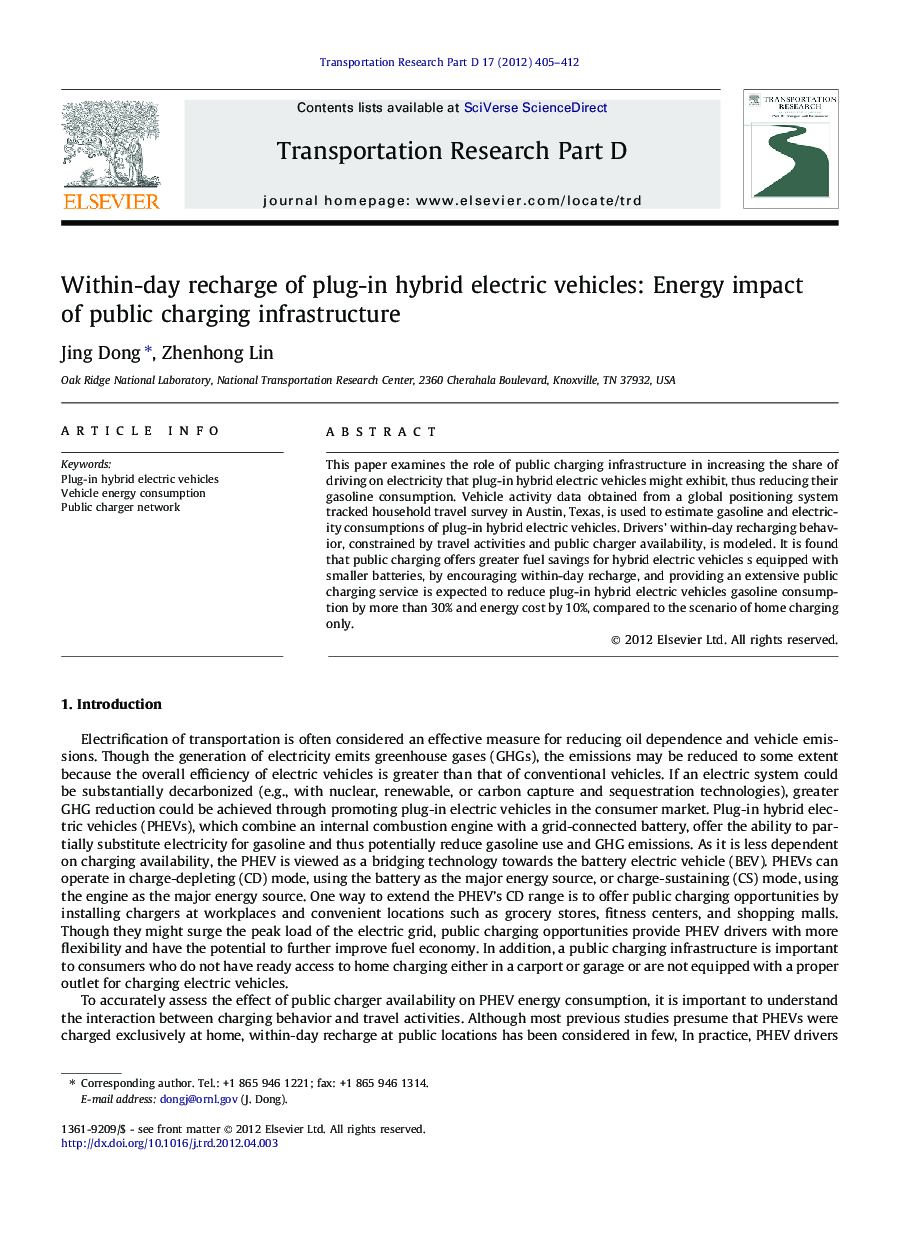| Article ID | Journal | Published Year | Pages | File Type |
|---|---|---|---|---|
| 1065997 | Transportation Research Part D: Transport and Environment | 2012 | 8 Pages |
This paper examines the role of public charging infrastructure in increasing the share of driving on electricity that plug-in hybrid electric vehicles might exhibit, thus reducing their gasoline consumption. Vehicle activity data obtained from a global positioning system tracked household travel survey in Austin, Texas, is used to estimate gasoline and electricity consumptions of plug-in hybrid electric vehicles. Drivers’ within-day recharging behavior, constrained by travel activities and public charger availability, is modeled. It is found that public charging offers greater fuel savings for hybrid electric vehicles s equipped with smaller batteries, by encouraging within-day recharge, and providing an extensive public charging service is expected to reduce plug-in hybrid electric vehicles gasoline consumption by more than 30% and energy cost by 10%, compared to the scenario of home charging only.
► Plug-in hybrid electric vehicles gasoline and electricity consumptions are estimated. ► Within-day recharge is constrained by travel activities and charger availability. ► PHEVs equipped with smaller batteries benefit more from public chargers.
